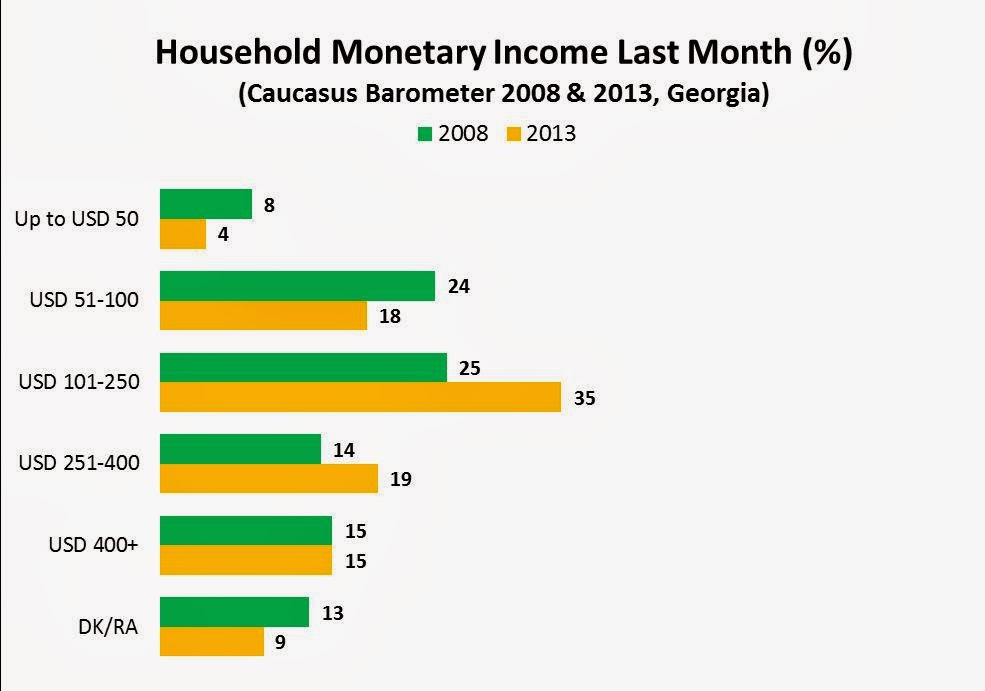
საქართველოს მოსახლეობისთვის მთავარ სატკივრად კვლავ ეკონომიკა რჩება. სამომხმარებლო ფასის ინდექსის და დოლარის ლართან გაცვლის კურსის ზრდასთან ერთად, ბოლო წლების განმავლობაში შინამეურნეობების საშუალო ხარჯებიც გაიზარდა. ამასთანავე, უახლესი მონაცემების მიხედვით, მოსახლეობის მხოლოდ 10%-ს აქვს რაიმე დანაზოგი. შინამეურნეობის საშუალო ხარჯების გაზრდასთან ერთად, საინტერესოა, რაში ხარჯავს ხალხი ფულს საქართველოში. CRRC-NDI-ის ბოლო, 2019 წლის ზაფხულის კვლევაში დაისვა კითხვები ოჯახის ხარჯებთან დაკავშირებით, რაც გარკვეულ წარმოდგენას გვიქმნის იმის შესახებ, თუ რაში ხარჯავენ ფულს საქართველოში და ვინ უფრო მეტს ხარჯავს გარკვეული სახის პროდუქტებსა და მომსახურებაში.



